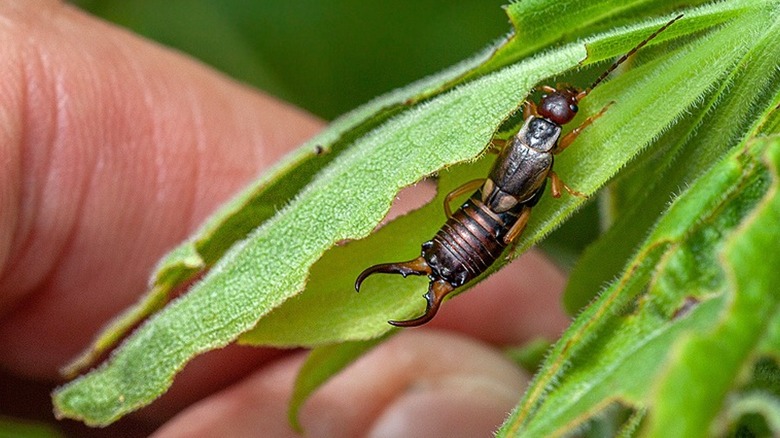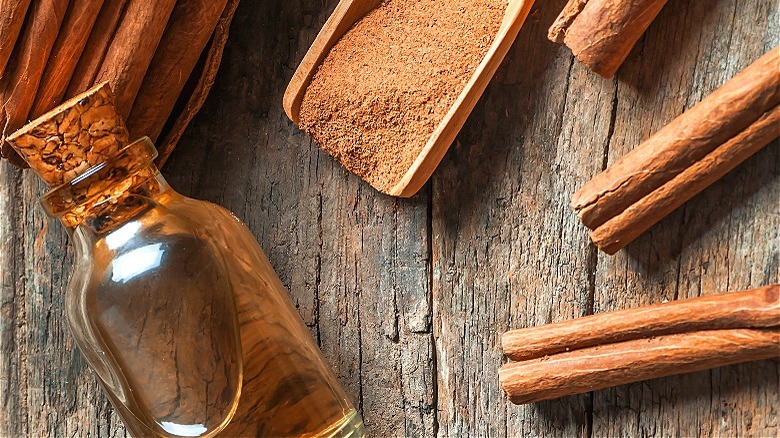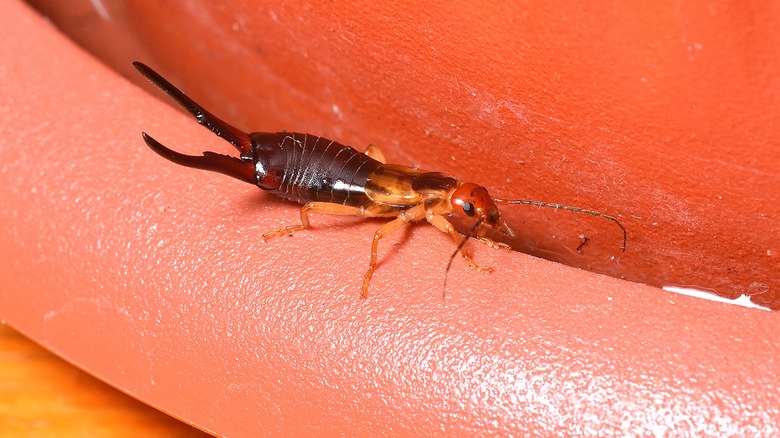Is Cinnamon The Secret To Keeping Earwigs At Bay?
Earwigs (Forficula auricularia) are prevalent garden pests, and they will often chew on diverse plant materials: flowers, fruits, vegetables, buds, and leaves. Nevertheless, the extent of destruction these pincher bugs typically bring is minimal, so long as their presence doesn't reach levels of infestation. With this said, even a few earwigs walking around your home can be one too many. So, if you're hoping to keep earwigs out of the house and ward them off your property altogether, then take a look at your pantry or spice rack; you likely have a natural repellent already on hand, ready to use: cinnamon.
While earwigs can be a nuisance for your garden, they can also pose discomfort to humans. They sport pincers on their abdomen, primarily for defense, and might use them to pinch humans if provoked. Although typically not dangerous (their pincers lack venom, via WebMD), such bites can be painful, leading to swelling and redness. Consequently, it's crucial to deter earwigs from living areas.
How to use cinnamon to keep earwigs away
A secret no more, you can apply cinnamon in its various forms — powder, liquid, or stick — to your home and garden to keep earwigs at bay. The method you use will depend on where you target the earwigs, and if your problem is a few pincher bugs or more serious.
If using cinnamon powder, you could create a powder barrier around your garden's plants or along the walls inside your home. You can even sprinkle it on counters to keep critters like earwigs from walking around. Speaking to BestLife, Natalie Barrett, a pest control expert from Nifty Pest Control, explained that cinnamon works as a natural pest repellent because, quite simply, bugs don't like the smell. What's more, they apparently don't like walking how it feels. Said Barett, "Insects and other pests don't like the smell of cinnamon, nor are they fond of its powdered texture."
Beyond powder, you could also try applying cinnamon in its liquid form. A mixture of cinnamon oil diluted in water can be directly sprayed onto plants, which will give the plants a nice cinnamon smell that humans may like but bugs definitely won't. Alternatively, you could strategically scatter cinnamon sticks around pots and your garden's perimeter as a preventative measure to keep the bugs at bay.
Why cinnamon is so effective
Primarily, cinnamon functions as a DIY and natural insect repellent; however, in higher concentrations, it can also act as a biocide and deter insect egg-laying altogether. A biocide is a chemical or biological agent designed to eliminate, regulate, or deter a particular organism, and cinnamon is very effective in this capacity. The potent aroma combined with cinnamon's inherent chemical composition makes it a formidable deterrent against many pests.
Beyond earwigs, cinnamon's ability to repel extends to other pests, too, like mosquitoes, wasps, and ants. None of these bugs like the smell of cinnamon, and it's a handy solution to try since most people have some form of cinnamon in their homes already. It doesn't take much to put out a few cinnamon stop signs and see if it works.
With this said, because the effectiveness of cinnamon as a natural bug repellent depends on its smell, the most effective solution of the three forms — powder, liquid, or stick — is cinnamon oil because the odor will last for longer. Further, you can better target with a diluted spray than with powder or sticks, both of which can shift, move, and, even, blow away.


